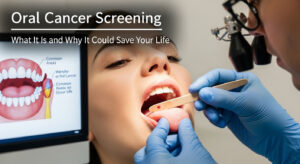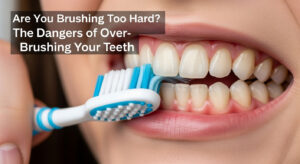Author: nearmedental
Dental implants are titanium stakes fitted into the jaw bone to hold a false tooth. These implants are used to replace lost teeth.
Dental implants are the best option you have to replace lost teeth.
Implants have been highly successful and safe, but a few patients have experienced failure before. Studies indicate that between 5 and ten percent of all the patients that receive dental implants experience complications. Some immediately after the procedure while others a few years down the road.
When dental implants fail, they can lead to other complication such as dental cavities. Take time to understand what caused the dental implants to fail, so that you can know where to head to and who to deal with.
Let us look at a few complications and what causes failure.
Gum Disease Is a Major Cause of Failure
Healthy gums form a significant requirement for fruitful implants. The physician cannot proceed with the process if your gums have issues.
Gum disease is a condition that infects the gums, and if left unattended to, can affect the jaw bone. If your gums are compromised, inflammation is just a few steps away, leading to implant loss. This is why the dentist will test for gum disease and treat it before proceeding to fit the implant.
Treating gum disease might take some time, which means that you might have to wait a little bit longer for the implants to be fitted. Visit the dental implants Brooklyn office to start the procedure.
Smoking is Detrimental to Your Teeth
Smoking can make the implant to fail because it causes constriction of blood vessels. Constriction of blood vessels limits blood flow to your gums, which in turn reduces the speed of healing.
This doesn’t mean that a cigarette smoker shouldn’t go for this treatment. Desist from smoking for a week before the procedure, and for two months after the process is done.
Infection is a Major Complication
Infections can quickly arise after the procedure or way after. This depends on various factors. First, if you suffer from an autoimmune condition, you are at a high risk of an infection arising at the treatment site. Smoking tobacco, poor dental hygiene, misalignment, or sensitivity to the implant is a precursor to infection.
When do You Realize the Implant is Infected?
Signs that the implant is infected are numerous – a wobbly implant, red, inflamed gums surrounding the implant, bad odor, and discomfort in the area, a dull ache, and pus in the region.
When you notice any of these signs, contact the dentist immediately.
Shifting of the Implant
Implant shifts occur when the implant loses stability. It can occur immediately after the tooth is replaced. A loose implant means that osseointegration didn’t work as expected.
Movements are usually due to loss of bone support for the implant, but the dentist goes ahead to complete it. Without sufficient bone support, the implant doesn’t fuse into the jawbone, and it won’t be stable.
When you notice the implant moving or losing its stability, schedule for an appointment with your dentist immediately. This is usually an emergency because it can lead to loss of the implant or injury.
Allergic Reactions
Some people are allergic to the titanium alloy, the metal of choice in implants. If you are allergic to the metal, you experience loss of taste in your mouth, soreness, and a stinging feeling.
If you have an allergy, ensure you mention it when you meet the dentist. He will come up with a different composition to use for the pin.
Nerve Damage
This happens when the physician sets the pin near to a nerve—signs of this complication consist of stinging gums, and tongue. One side of the face might be numb afterward.
Loss of the Implant
Denial of the implant is a rare occurrence. Although rare, it happens. This ensues when the body discards the implant, bringing about discomfort, fever, inflammation, and chills.
Impact to the implant can lead to slackening and subsequent loss. This can fail.
Final Words
Implants help you get the smile back. However, at times the implants might not work as intended, which isn’t a huge issue because you can have them repaired the right way. Visit a “dental implants Brooklyn” office to get the best services.











